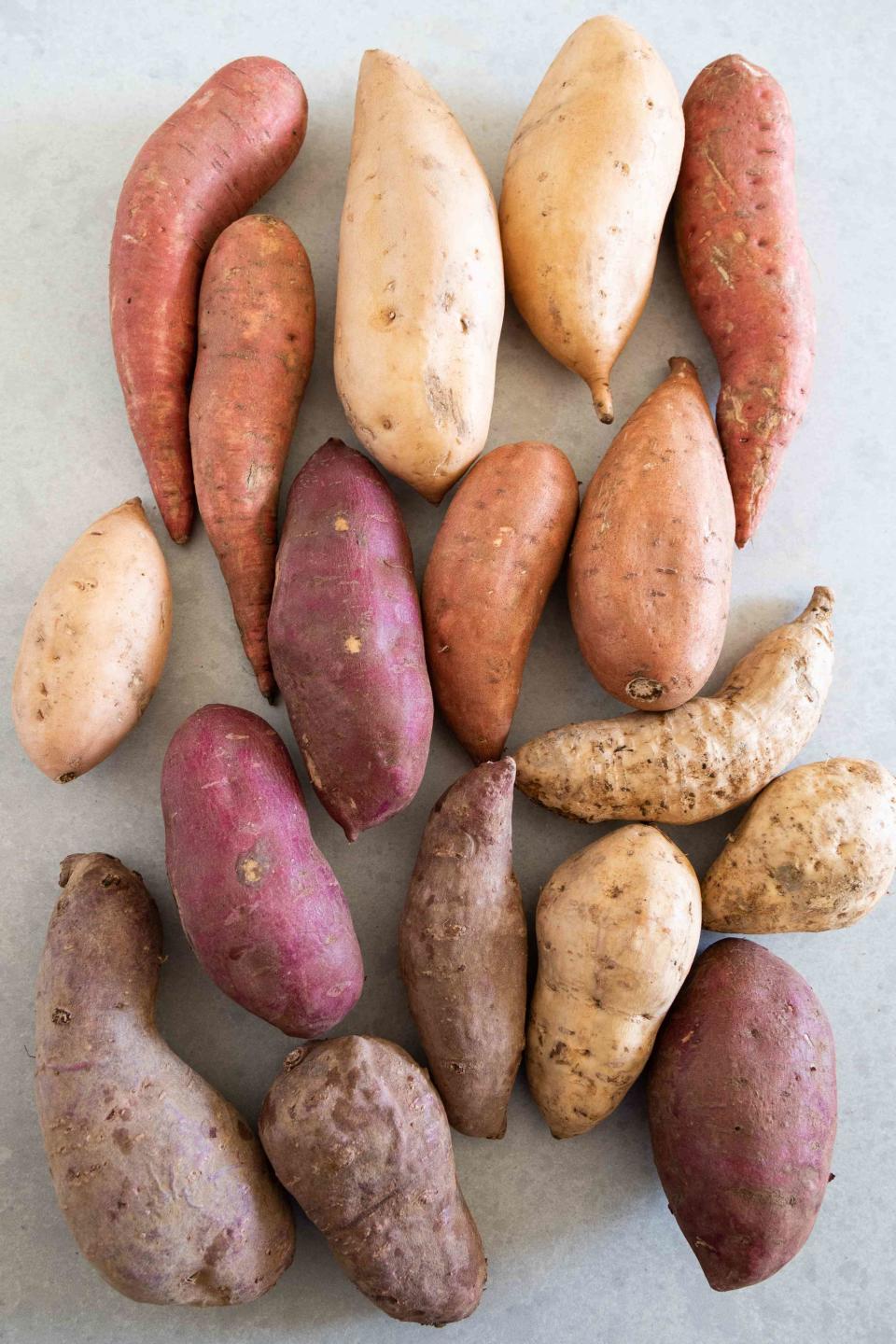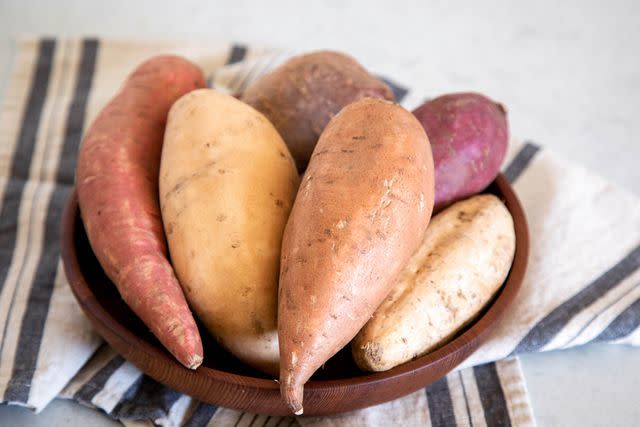The Only Way To Prevent Sweet Potatoes From Shriveling Up and Rotting
And how long do sweet potatoes last, exactly? The experts weigh in.

Simply Recipes / Lori Rice
Sweet potatoes are the unsung heroes of fall cooking. These sweet-fleshed tubers are delicious simply baked, steamed, microwaved, or served in their jackets. My favorite way cook sweet potatoes is to cube and roast them for salads, rice bowls, or a simple side dish. There are so many easy and nourishing ways to enjoy them.
So right about when the temperature outside starts dropping, I start stocking my pantry with sweet potatoes. And sometimes I end up with more than I can cook before they start shriveling up and rotting. Here's what I found out about how to store sweet potatoes and how to know when it's time to toss them into the compost bin.
Read More: Your Guide to Sweet Potatoes
How To Buy the Best Sweet Potatoes
As far as picking the right sweet potato goes, opt for small- or medium-sized sweet potatoes. Though larger ones might seem appealing, according to our friends at Real Simple, smaller sweet potatoes tend to be sweeter and creamier than larger ones, which are usually starchier.
Also, the sweet potato should be firm to the touch. If it's soft or limp, it's probably already starting to go bad.

Simply Recipes / Lori Rice
Where To Store Sweet Potatoes (and Where Not To)
According to the experts at the North Carolina Sweet Potato Commission, sweet potatoes shouldn't be kept in the fridge because exposure to cold temperatures "will produce a hard center and unpleasant taste." Instead, keep sweet potatoes at room temperature, in a cool, dry, and well-ventilated place. Think basement or dark pantry rather than window sill.
4 Signs You Should Toss Your Sweet Potatoes
The good news is that sweet potatoes are hardy, and it's fairly difficult for these root vegetables to go bad quickly. However, despite feeling nice and sturdy, sweet potatoes do not last forever. I try to enjoy them within 10 days of buying them. Sometimes I forget they're in my pantry, so I have to look for these four telltale signs it's time to toss the tubers in the compost bin:
Black or brown spots developed on the skin, or there is visible mold or soft rot
The sweet potatoes smell bad—you can't miss it
They have shriveled up or become soft and mushy in texture
Sprouts have developed on the surface
Read More: The 5 Easy Ways To Prevent Potatoes From Sprouting

Our Favorite Sweet Potato Recipes
A version of this article originally appeared on MyRecipes.com.
Read the original article on Simply Recipes.

